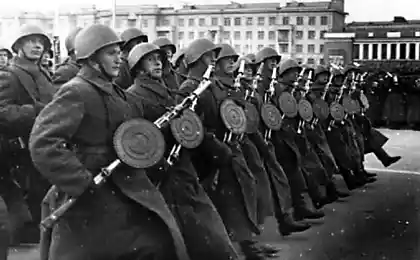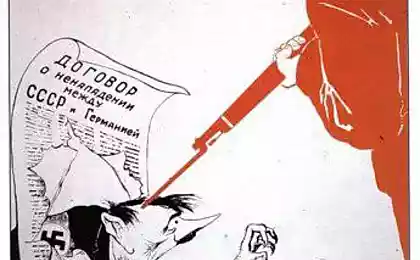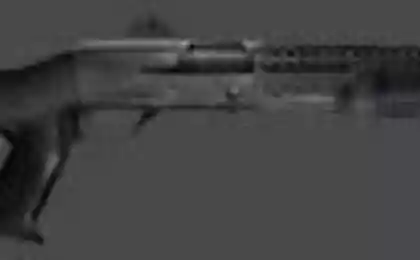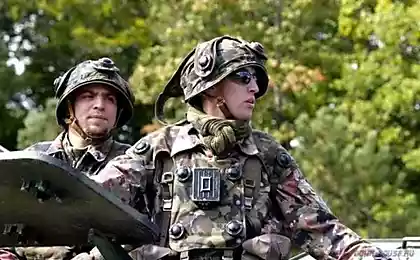198
Countries that do not have an army
Most countries have numerous armed forces that are capable of defending and attacking at any given time (the largest army currently belongs to China, with approximately 1,600,000 soldiers), while some countries have no armed forces at all. Here are 10 countries without an army. Each of them has its own reasons - someone has a history, someone has a location. While there is no need for these countries to maintain an army, many still have a backup plan in the event of an attack.
Since the founding of the islands, the only force here is the naval police, which includes several people and a small patrol boat. Under the Free Association Treaty, the United States is responsible for protecting the Marshall Islands.
Samoa has no military at all, only a small police force and a Maritime Surveillance Unit for Internal Security, with a single patrol vessel. Under the 1962 treaty, New Zealand is responsible for defending Samoa.
Palau's only force is the Maritime Police with 30 officers for internal security. Maritime Surveillance is armed with small arms and is armed with one Pacific patrol vessel. Palau is also protected by the United States under the Treaty of Free Association.
Since the founding of Tuvalu, only symbolic police forces have been established here, as well as a maritime patrol. As in the case of previous countries, the patrol is armed with only one Pacific boat Te Mataili. This country has never had to use the military.
The Vatican has a Gendarmerie Corps for internal security. The guard is a unit belonging to the Holy See, not the Vatican State. There is no defense agreement with the Italian Republic because it would violate Vatican neutrality, but unofficially the Italian military still protects the Vatican. In 1970, the Palatine Guard and the Noble Guard were abolished.
Australia has taken full responsibility for the defence of Nauru through an agreement. However, the country has a relatively large armed police force as well as internal security forces.
The country had its own armed forces up to a severe inter-ethnic conflict, which was intervened by Australia, New Zealand and other Pacific countries, determined to restore law and order. Since then, the armed forces have been abolished and only police and maritime patrols remain for internal security.
Liechtenstein abolished its army in 1868 and found it too expensive. Armed forces are permissible in times of war, but this need has not yet arisen. However, the Principality of Liechtenstein has several special services and tactical teams performing internal security duties.
Grenada has not had an army since 1983 due to a partnership agreement with the United States. The Royal Grenada Police maintains all internal security functions. The Special Service is responsible for the regional security system.
Andorra does not have a standing army, but it has a defense agreement with France. The country's small volunteer army is exceptionally ceremonial. The paramilitary unit GIPA (counterterrorism and prisoner management) is a component of the state police.
Source: lifeglobe.net/
Since the founding of the islands, the only force here is the naval police, which includes several people and a small patrol boat. Under the Free Association Treaty, the United States is responsible for protecting the Marshall Islands.
Samoa has no military at all, only a small police force and a Maritime Surveillance Unit for Internal Security, with a single patrol vessel. Under the 1962 treaty, New Zealand is responsible for defending Samoa.
Palau's only force is the Maritime Police with 30 officers for internal security. Maritime Surveillance is armed with small arms and is armed with one Pacific patrol vessel. Palau is also protected by the United States under the Treaty of Free Association.
Since the founding of Tuvalu, only symbolic police forces have been established here, as well as a maritime patrol. As in the case of previous countries, the patrol is armed with only one Pacific boat Te Mataili. This country has never had to use the military.
The Vatican has a Gendarmerie Corps for internal security. The guard is a unit belonging to the Holy See, not the Vatican State. There is no defense agreement with the Italian Republic because it would violate Vatican neutrality, but unofficially the Italian military still protects the Vatican. In 1970, the Palatine Guard and the Noble Guard were abolished.
Australia has taken full responsibility for the defence of Nauru through an agreement. However, the country has a relatively large armed police force as well as internal security forces.
The country had its own armed forces up to a severe inter-ethnic conflict, which was intervened by Australia, New Zealand and other Pacific countries, determined to restore law and order. Since then, the armed forces have been abolished and only police and maritime patrols remain for internal security.
Liechtenstein abolished its army in 1868 and found it too expensive. Armed forces are permissible in times of war, but this need has not yet arisen. However, the Principality of Liechtenstein has several special services and tactical teams performing internal security duties.
Grenada has not had an army since 1983 due to a partnership agreement with the United States. The Royal Grenada Police maintains all internal security functions. The Special Service is responsible for the regional security system.
Andorra does not have a standing army, but it has a defense agreement with France. The country's small volunteer army is exceptionally ceremonial. The paramilitary unit GIPA (counterterrorism and prisoner management) is a component of the state police.
Source: lifeglobe.net/
Visible signs of deficiency and excess of vitamins and minerals
Flax seed — a simple effective method of bowel cleansing
























